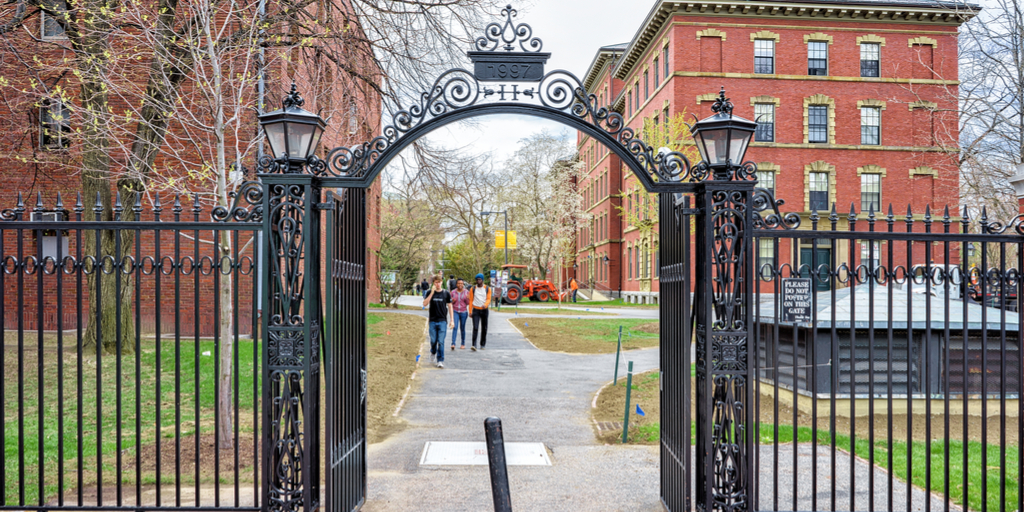Keith Whittington on how to recover the American university as a place of free inquiry and intellectual rigor.
Affirmative Action: Does Diversity Offer a Sporting Chance?
I received a letter yesterday from Harvard’s outgoing president Drew Gilpin Faust, asking me to close ranks against an oncoming political attack from a student-rights group that is demanding—brace yourself—that college acceptance standards be tied to scholarly excellence instead of accidents of birth. This “divisive” attack (the president’s word, not mine) from Students for Fair Admissions is attempting to advance a meritocratic agenda that will, it is feared, destroy the sacred idol of big-D Diversity.
Divisiveness and Diversity
I looked up this shadowy, reactionary group of agitators. Their mission is to “… support and participate in litigation that will restore the original principles of our nation’s civil rights movement: A student’s race and ethnicity should not be factors that either harm or help that student to gain admission to a competitive university.” The group has ties to the Republican right, which is the kiss of death in today’s toxic stew of identity politics. This is odd, because frankly Republicans have a much better track record of real commitment to egalitarian principles than the Democratic Party (which, for instance, voted overwhelmingly against the Civil Rights Act). In today’s Orwellian world, however, treating people differently based on the color of their skin is the hallmark of woke progressive thinking. Meanwhile, placing the content of someone’s character before the color of his or her skin is, well, racist.
Harvard says it will “react swiftly and thoughtfully to defend diversity as the source of our strength and our excellence … [a] diverse student body enables us to enrich, to educate, and to challenge one another.” In the abstract sense, I couldn’t agree more. Diversity is a good thing. But diversity of what, exactly? While Harvard is attempting (somewhat credibly, and probably with the best of intentions) to cobble together a variegated group of students with all the appropriate hues and gender affiliations, it is less clear they are doing an adequate job of welcoming students with a diversity of the most important trait: thought. As if student bodies were some kind of exotic menagerie, Harvard has done a fine job carefully selecting crops of students who look diverse based on superficialities, but have been notoriously poor at selecting groups of students with a diversity of intellectual persuasion.
Sporting Odds
A process that selects academic winners and losers on the basis of “background” is considered not only acceptable, but eminently desirable today. I discussed this with a friend who vigorously defended the sensibility of affirmative action programs for giving students from a less privileged background a “fighting chance” in the great race that is life.
By that logic, I asked this friend (a former college athlete), if it wouldn’t make sense to require that sports, which have remained largely clear of such social manipulations (Title IX notwithstanding) to toe the same line? Would it not be just to establish a protocol for sporting awards that manages for a diverse winner’s group that accounts for the vagaries of upbringing and relative advantages of the contestants? After all, admission to a coveted university is an “award” every bit as much as admission to an elite sporting team or gold medal. My friend found the suggestion ridiculous, even bordering on offensive.
Perhaps. As I watch Russia pummel Saudi Arabia in the World Cup, oughtn’t the Saudis who have, shall we say, a mixed history of sport, be given a sanctioned handicap against the clearly better-prepared Russians? Shouldn’t the results of the Olympic 100-meter dash account for “life experience” in ways that ensure a representative sampling?
Shouldn’t college athletic teams (let alone the NBA and NFL) hew to the same standards of ethnic diversity that drive college entrance protocols? On closer thought, my friend is right—it is indeed ridiculous and offensive.
The problem, of course, is that “commitment to diversity” is not a meaningful goal. No person, committee, or policy is wise enough to be able to judiciously micromanage the complicated set of characteristics that define “diversity.” Inevitably, in pursuit of one form of diversity, another is lost because the pursuit of diversity involves choosing winners and losers for the coveted slots in each freshman class. And next thing you know, you have Asian Americans bitterly and righteously complaining of unjustly being discriminated against at Harvard.
Commitment to excellence, and a commensurate pledge to helping others achieve it is far much more credible. If there are systematic issues with underrepresented groups (such as poor or conservative kids) effectively being locked out of the halls of wealth and privilege, then we must apply efforts toward diligently aiding those kids in the communities where they are from. Help them to write better essays, learn calculus, or play the violin, not to guess (and hope) that the accidents of their birth may happen to favor them this particular year. Help them meet and exceed entrance exam standards, rather than by playing schoolmarm wicket-keeper. In short, make academic excellence as pure as sporting excellence.
Harvard’s president tells me that,
…as a university community, we are bound across differences by a shared commitment to learning, to pursuing truth, and to embracing the rigor and respect of argument and evidence. We never give up on the promise of a world made better by an assumption revisited, an understanding expanded, or a truth questioned—again and again and again.
Agreed. And to that end, I’d like to question the truth of Diversity as an end unto itself, to revisit the assumption that discrimination, when done by the “right people” and for the “right reasons” is okay.



